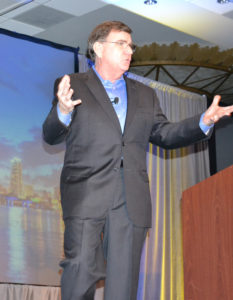What a Soft Skills Trainer Can Do For Your Organization
A common mistake that executives and hiring managers make is prioritizing hard skills (technical knowledge) over soft skills. Soft skills play a major role in overall organizational efficacy in addition to more well-rounded employees who make valuable contributions.
What are soft skills? Problem-solving, communication, conflict resolution, being a good listener, a strong team player: in general, soft skills are people skills that are generally left off resumes, but expected of the most effective employees. For employees who spent their formative years focusing on hard skills and subsequent certifications, the environments in which they previously learned and worked in could’ve produced poor soft skills results. For the Millennial generation in particular who have faced harsher demands for technical proficiency, managers often find them in need of soft skills training. Older workers who in turn focused primarily on technical aptitude and getting the best results for assignments over communications and teamwork also tend to need more soft skills training.
A soft skills training speaker can improve communications across your organization and its stakeholders, and address common problems that you likely weren’t aware were caused by soft skills gaps. You can expect the following benefits by engaging a soft skills training speaker:
- Retain more clients. Attracting clients is just one part of the game: if your organization has difficulty retaining them, it’s often indicative of lacking soft skills.
- Bolster management that does more than just show up. Middle managers who show up and don’t lead may have great technical proficiency, but poor soft skills.
- Reduce staff turnover. Constantly retraining employees is expensive and disruptive. If your new hires constantly leave, there’s definitely a soft skills gap.
- Increased creativity and innovation. Soft skills rely on intuition, personal development, and interpersonal skills. By focusing only on hard skills, organizations can find themselves stagnating at light speed. By developing as individuals and as a team, innovation is more likely and creativity is encouraged more.
Strong soft skills help organizations become more effective and give them a competitive edge over organizations focusing solely on hard skills. By investing in soft skills training and development for your work force, you are fostering stronger interpersonal skills and teamwork which results in higher loyalty and engagement.
Mike Hourigan is a Soft Skills Trainer for established companies, organizations and events throughout the United States and Europe.
To find out how Mike can help your company, call 704-875-3030, 888-PRO-KEYNOTE fill out the form below:
